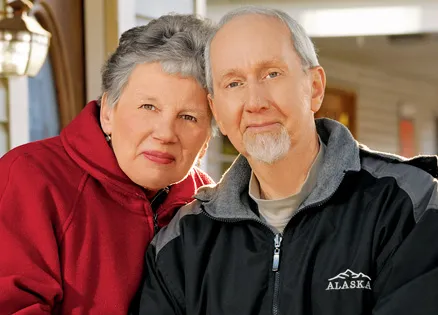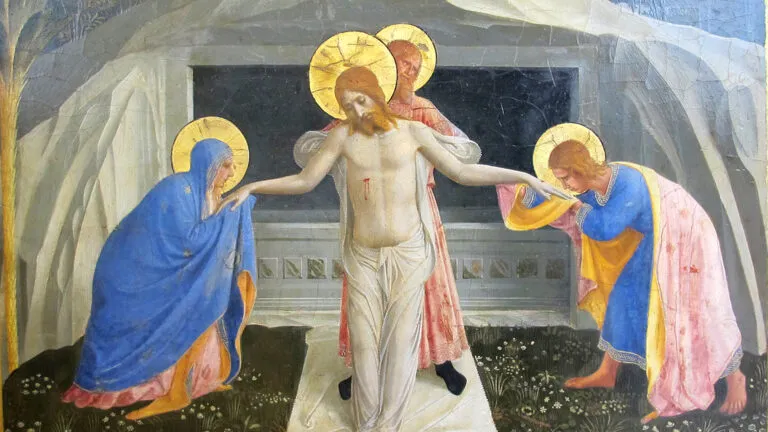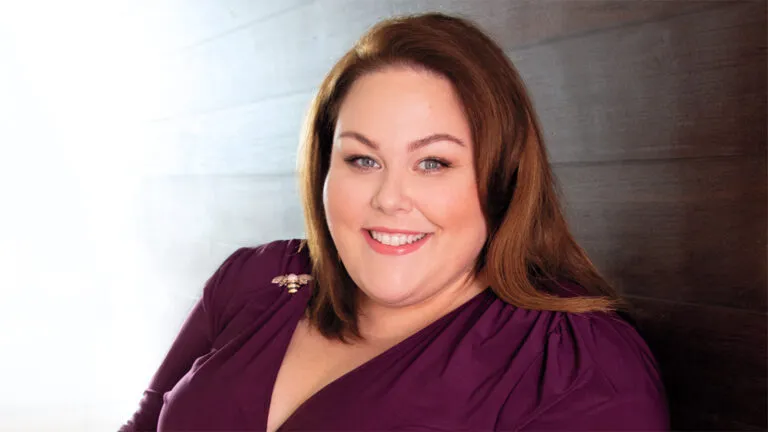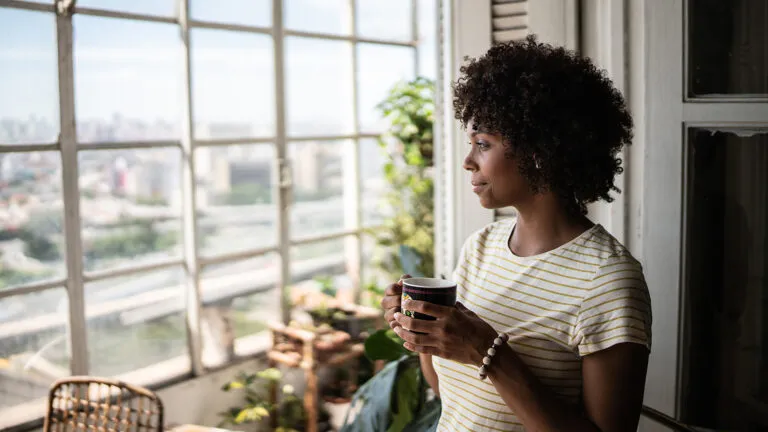I pushed against the back door of our house again, hard. No luck. It wouldn’t budge. The humidity from the flood had swollen the wood. My husband, Vince, had gone in through the front. As I waited, I told myself, Maybe it won’t be that bad. It was half hope and half prayer. Something told me, though, it was going to be bad. Real bad.
Two days earlier, on August 28, we’d evacuated Schoharie, our village of 1,000 in central New York, fleeing Hurricane Irene, which had swept up the East Coast, transforming streams into raging rivers.
The village was like a war zone. Shops wrecked, houses crumpled, nearly every one owned by someone we knew. Lampposts uprooted. An oil tank lay on its side. Debris everywhere.
Still I hoped we’d been spared. We didn’t live in the flood plain. The Schoharie Creek, usually a gentle, flowing stream, runs three-quarters of a mile from us. The last flood, in ’96, left a foot of water in our basement. That we could deal with.
“Let me get that for you,” a voice said. My neighbor. He came up the steps, turned the knob and threw his weight into the door. It opened.
I stepped through the doorway and froze. This can’t be my kitchen! My eyes darted from the floor to the countertops. Everything covered with a rank brown ooze. My legs buckled. I grabbed for the door, steadied myself. Covering my mouth and nose, I walked inside. My sneakers slipped in the muck.
What happened to the fridge? I spotted it, leaning over, blocking the way into the dining room. Vince peeked over the top of it. He was ashen.
“We lost everything on the first floor,” he said. “The water must’ve been at least five feet deep here.” Vince pushed the refrigerator over with his foot. It landed with a thud.
“Everything?” I said. I stared blankly around the room in…what was it? Shock? Utter disbelief?
“There’s mud everywhere,” he said. “My organ’s ruined, all my sheet music, your sewing machines, the fabric, your quilting books…”
“But…” It just didn’t seem possible. This house had stood since the 1850s. We had bought it not long after we married and we built our lives here—raised our daughters, Jenny and Stephanie, filled the place with memories.
I felt sick. Vince is the organist at church, his reed organ in the living room a treasured antique. I loved listening to him play while I quilted. All the things I’d collected over the years—the handcrafted wooden baskets, the beautiful felt angels in the corner cabinet, my autographed children’s books from teaching first grade.
We’d never be able to replace them. We didn’t have flood insurance. We lived simply on our teachers’ pensions—Vince had taught elementary school band and choir—and Social Security.
“What are we going to do?” I asked.
“We’ll start over,” Vince said. I wondered if he believed it. Did I?
This wasn’t how I’d imagined our retirement, with next to nothing to call our own.
“You work on emptying the kitchen and I’ll start in the living room,” Vincesaid. “I don’t want you coming out here. It’s too dangerous.”
By late afternoon the back deck was piled with plates and glasses, crockery, my mixer and waffle iron (the wiring ruined by the water), baking tins, table and chairs, garbage bags stuffed with food from the fridge. It was nearly dark when we finished, right before the 8:00 P.M. public safety curfew.
It had taken hours just to scrape up the muck. We’d barely made a dent. Lord, I wondered, how can we ever start over? We’ve lost so much!
We were staying at Stephanie’s an hour away. Driving out of town I gazed into the darkness, not a light anywhere.
The next day we returned. At the threshold I willed myself inside. I stared at the living room walls, covered with black dots. Mold. It seemed to grow before my eyes. Vince just shook his head, his face cloaked in sadness.
I busied myself in the sewing room, carrying load after load of soggy fabric to the curb. I had just picked up an armful of sodden pattern books when a woman walked up. She lived in a neighboring town and I hadn’t seen her in years. “Sue, you were the first person I thought of,” she said. “Tell me what I can do.”
For a moment I was speechless. “Thank you,” I said. I gave her a careful hug. I didn’t want to transfer any gunk. “Everything has to go. We’re piling it outside.” Once we emptied the house, maybe I’d be able to make sense of it all. Things had to get better. Didn’t they?
We were carrying out one of my sewing machines when a man showed up I’d never seen before, followed by a young couple. How had they come upon us? About noon there was a knock on the door—two women, also strangers.
“We have sandwiches, and a case of water,” one said. “Also, I wanted to let you know they’re setting up a free café behind the DAR hall.” Their help was a godsend, but as the afternoon wore on it dawned on me: They wouldn’t be here if it wasn’t really bad. Would our town survive?
Day after day Vince and I worked on our house with help from friends and family. But each day our hopes dwindled more. The mold meant gutting the house, not work we could do ourselves. But hiring someone to rehab the house would cost upwards of one hundred thousand dollars. We’d lost all our equity. No way to take out a loan.
For lunch we went to the community café, the tables filled with a bounty of home-cooked meals and dishes donated from area restaurants and supermarkets. Everyone was in the same boat.
There were times Vince and I barely spoke on the hour-long drive to Stephanie’s. We were too exhausted and demoralized. Even going to church didn’t offer the comfort I’d always found there. The sanctuary had flooded, the wood flooring destroyed, mold spreading across the walls. The organ was damaged too, but Vince got it to play.
“God is at work even now,” our pastor assured the congregation. I wanted to believe that! But what exactly was God doing?
One night the whole family, Jenny and Stephanie, their husbands, A.J. and Aaron, gathered in Stephanie’s living room. Aaron spoke first: “I don’t see any option but to sell the house for what you can and get a new place.”
I couldn’t believe my ears. The house was the one thing we hadn’t lost! Where would we move? And what bank would give a mortgage to a retired couple on a fixed income with few assets?
Everyone nodded in agreement—except Vince. He looked stunned. For a moment the room was silent. “You’ve given us a lot to think about,” he said.
That night worry and doubt pervaded my dreams. I awoke, my hands clenching the covers. Dear God, please help me to let go, to trust in you. To believe in a future.
A few days later a former colleague of Vince’s came by the house. “I posted a note about what you’re going through on Facebook,” he said. “I’ve heard from so many former students. They wanted me to give you this donation.” Inside the envelope was a check for one thousand dollars. We soon received an additional four thousand dollars.
Then, two weeks after the flood more than 20 people from Jenny’s church two hours south of us arrived to help gut the house, pulling out everything except for the floor and the framing.
Vince and I spent the day cleaning out the garage and his workshop, glad to leave the work to people younger and stronger. Truthfully, I couldn’t bear the thought of seeing our home stripped to its bones.
Late that afternoon Jenny came out to the garage. “We’re done,” she said. “Take a look.” I followed her and Vince back inside, the moment I’d dreaded. I walked into the kitchen. The walls, the cabinets, the built-in shelves, my sewing room, were gone. Just a big, empty space. I could see clear to the front walls.
I felt more relief than sorrow. This house no longer felt like our home. It was time to let go. “What do you think?” Jenny asked.
I paused for a moment. I’d lost so much in the flood, but what mattered most—the love of my family, the support of friends old and new, the spirit of community—was stronger, more alive than ever. I felt a stirring in my heart, my sense of hope rekindled. That’s what I needed to hold on to.
In the distance I could hear the rumble of power tools. It sounded almost like a heartbeat, the village slowly, haltingly returning to life. “You—everyone—have been such a blessing,” I said. “I don’t know what’s next. But we’re going to be okay.”
In January we bought a house outside Schoharie, on higher ground. It’s smaller than our old place, perfect for a retired couple. The village remains a work in progress, a patchwork of houses for sale and people rehabbing their homes. It’s a slow, sometimes painful, process. But there’s a spirit that grows stronger.
For months the community café has served lunch daily, fueled by a supply of food that never dwindled, brought by people who felt called to help. Volunteers still come. Some weekends they’ve nearly doubled the population of Schoharie. God at work even in the midst of chaos and despair. Especially then. And thanks to that I know we’ll be okay.
Download your FREE ebook, The Power of Hope: 7 Inspirational Stories of People Rediscovering Faith, Hope and Love






